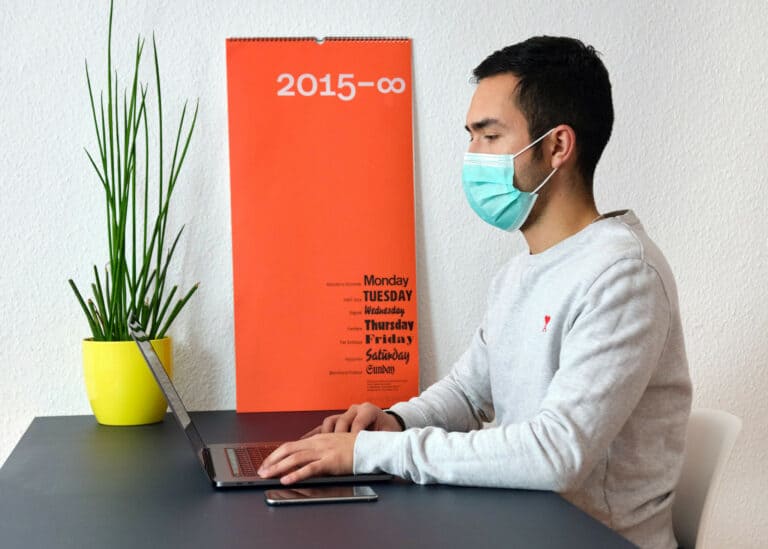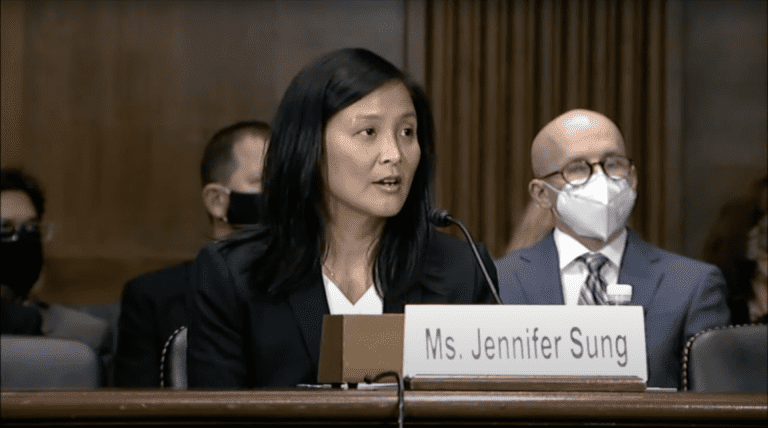
Sharon Block is a Professor of Practice and the Executive Director of the Center for Labor and a Just Economy at Harvard Law School.

Brishen Rogers is an Associate Professor of Law at Temple University, a Visiting Professor at Georgetown University Law Center (Fall 2019), and a Fellow at the Roosevelt Institute.

Benjamin Sachs is the Kestnbaum Professor of Labor and Industry at Harvard Law School and a leading expert in the field of labor law and labor relations. He is also faculty director of the Center for Labor and a Just Economy. Professor Sachs teaches courses in labor law, employment law, and law and social change, and his writing focuses on union organizing and unions in American politics. Prior to joining the Harvard faculty in 2008, Professor Sachs was the Joseph Goldstein Fellow at Yale Law School. From 2002-2006, he served as Assistant General Counsel of the Service Employees International Union (SEIU) in Washington, D.C. Professor Sachs graduated from Yale Law School in 1998, and served as a judicial law clerk to the Honorable Stephen Reinhardt of the United States Court of Appeals for the Ninth Circuit. His writing has appeared in the Harvard Law Review, the Yale Law Journal, the Columbia Law Review, the New York Times and elsewhere. Professor Sachs received the Yale Law School teaching award in 2007 and in 2013 received the Sacks-Freund Award for Teaching Excellence at Harvard Law School. He can be reached at [email protected].
As the country moves toward “reopening,” we face a critical pair of questions. The first is how businesses can begin operating again while ensuring the safety of the millions of workers who will return to their jobs. It is clear that we cannot rely on the Trump administration to accomplish this crucial task – after all, this Administration’s Occupational Safety and Health Administration has failed even to issue a standard for dealing with infectious diseases and is quite literally abandoning workers to the ravages of the virus. The second question, related to the first, is how to ensure that the economy that we reopen is more equitable than the one we shut down.
In our view, the right answer to both questions is worker power. In the immediate term, we need to empower working people to identify the safety and health problems they confront at work, and to demand that their employers take the necessary steps to ensure safe and healthy workplaces. In the longer term, we need to empower workers to insist upon a more equitable share of income and wealth in the economy that we rebuild after the public health crisis passes. Both of these moves will require bold action from Congress or state governments.
The Essential Workers Bill of Rights proposed by Senator Elizabeth Warren (D-MA) and Representative Ro Khanna (D-CA) constitutes a step in the right direction. Indeed, at the heart of the Warren-Khanna Bill of Rights is a recognition that the reordering of our economy won’t happen without increasing worker power. And it recognizes that this kind of power building should start with the most urgent context—with front-line workers facing exposure to COVID-19. Thus, the bill not only requires employers to provide the protective gear their workers need and demands that the Occupational Safety and Health Administration do its job, it also calls on the government to “treat workers as experts,” giving them seat at the table during our response to COVID.
But more is needed. In a recent report from the Roosevelt Institute and Clean Slate for Worker Power, we chart a course that will guarantee workers a meaningful role both in the current health crisis and in the economic rebuilding that will follow. These are critical steps toward building worker power now and for the long-term reorientation of our economy
It is workers who are essential to our response and recovery, and we recommend that Congress guarantee workers a voice in three ways, each of which draws lessons from other countries’ successes. First, the United States needs to establish a means for business leaders and worker representatives from the same sector to meet, exchange information, and develop standards, rules and protocols that make sense for that sector as a whole. Such a sectoral approach responds to the fact that workplace safety and health risks and economic challenges are often similar across businesses in the same industry: for example, grocery stores across the country face many common challenges and need common solutions. The same is true of warehouse, meatpacking, hospital, and other industries. A sectoral approach also alleviates the costs that individual businesses would bear to develop rules and protocols or raise wages on their own.
Such sectoral collaboration is ubiquitous in Europe and helps explain why many European countries are so far ahead of us in addressing the pandemic’s hardships. In Spain, to take one example, the metal sector – which includes industries ranging from automobile manufacturing, to waste management, to HVAC production – has already bargained a sector-wide agreement aimed at facilitating safe operations by specifying, among other things, that employers will provide workers with personal protective equipment (PPE), disinfect surfaces and shared spaces every day, take the temperature of all employees each day before anyone enters a workplace, and stagger start times and shifts to minimize overcrowding. Similar agreements have been bargained across sectors in multiple European countries.
Workers also need a voice in their workplaces. Our second recommendation is that Congress require companies to establish committees – staffed by managers and employees – in specific businesses or workplaces. These committees can adapt sector-wide standards to local conditions, and, as important, can help ensure that rules and protocols are actually implemented and enforced on the ground. At both the sectoral and workplace level, it is critical that workers be represented by unions whenever possible to ensure that commissions and committees advance workers’ genuine interests.
The third prong of our approach, necessary to make the whole system work, is robust protection – against discharge or discrimination – for employees who participate in these processes. By ensuring that no worker will risk their job by contributing information about safety risks, or by demanding compliance with rules and protocols, we can ensure that workers’ unique insights will not be lost, and that this process genuinely promotes health and safety.
During the Great Depression, Congress recognized that giving workers a seat at the table was a critical piece of not only making the economy work again but also ensuring that workers took home some of the value they helped create. To do this, it enacted the federal Fair Labor Standards Act (FLSA) creating “industry committees” with representatives of labor, employers, and the public to set minimum terms at the sectoral level. At the same time, Congress bolstered unions, enacting new protection for workers’ ability to act collectively through them. Unionization gave workers a stake in their firms and empowered them to share their expertise with management. It also gave workers the power to make economic demands on their employers and the government, and therefore to build a more equitable and inclusive economy than the one that led to the 1929 crash and hampered the recovery.
Building a more equitable economy after the pandemic will require the same sort of worker input and power that was so instrumental during and after the Depression. That will require reform on many levels, but the sectoral commissions and workplace committees we propose would constitute a critical step forward.










Daily News & Commentary
Start your day with our roundup of the latest labor developments. See all
July 4
The DOL scraps a Biden-era proposed rule to end subminimum wages for disabled workers; millions will lose access to Medicaid and SNAP due to new proof of work requirements; and states step up in the noncompete policy space.
July 3
California compromises with unions on housing; 11th Circuit rules against transgender teacher; Harvard removes hundreds from grad student union.
July 2
Block, Nanda, and Nayak argue that the NLRA is under attack, harming democracy; the EEOC files a motion to dismiss a lawsuit brought by former EEOC Commissioner Jocelyn Samuels; and SEIU Local 1000 strikes an agreement with the State of California to delay the state's return-to-office executive order for state workers.
July 1
In today’s news and commentary, the Department of Labor proposes to roll back minimum wage and overtime protections for home care workers, a federal judge dismissed a lawsuit by public defenders over a union’s Gaza statements, and Philadelphia’s largest municipal union is on strike for first time in nearly 40 years. On Monday, the U.S. […]
June 30
Antidiscrimination scholars question McDonnell Douglas, George Washington University Hospital bargained in bad faith, and NY regulators defend LPA dispensary law.
June 29
In today’s news and commentary, Trump v. CASA restricts nationwide injunctions, a preliminary injunction continues to stop DOL from shutting down Job Corps, and the minimum wage is set to rise in multiple cities and states. On Friday, the Supreme Court held in Trump v. CASA that universal injunctions “likely exceed the equitable authority that […]